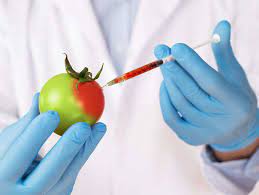The concern about whether or not genetically modified foods are safe to eat is a complex issue with many unanswered questions. Although more than 60 countries require GMO labeling, mandatory labeling of GMO foods is not currently a law in the United States. This lack of transparency and labeling can make shopping difficult if you are trying to avoid GMOs in your food. Right now, it may not be possible to completely avoid all foods that contain GMOs, but you can definitely minimize the amount you consume. Follow these tips to make your non-GMO shopping trips a little easier. Buy organic foods that are labeled 100% organic. Organic food cannot use genetically modified seeds. One caveat, if the food states that it contains "organic ingredients" rather than being 100% organic, it may contain GMOs. If you're watching your food budget like most of us, check the sales ad before you buy.
You can find substantial savings by planning your shopping trip around the sales and stocking up whenever possible. Check the monthly Down to Earth Super Saver Deals brochure for sales, and as a bonus, non-GMO project stamps are displayed in the sales ad. Save time and money by reading labels! To make labels easier to read, choose whole, unprocessed foods whenever possible. Processed foods can contain "hidden" additives that come from genetically modified sources. An example would be a processed food, such as a granola bar, that contains soy lecithin that may come from genetically modified soybeans. Whole, unprocessed foods don't have as many ingredients for you to figure out. Look for the Non-GMO labels on the foods you buy. The food may contain a non-GMO project seal or the package may say "Made without genetically modified ingredients." Many food companies seek certification themselves so that their products are certified non-GMO.
If a food is not organic or does not have a Project Non-GMO seal, avoid products that come from the most common GMO crops. This includes corn, soybeans, canola, papaya, zucchini and yellow summer squash, sugar beets, and cottonseed. Until more research is available on the health, safety, environmental impact, and crop yield success of GMOs, mandatory labeling is warranted so that consumers can make informed decisions. In the meantime, label reading and smart shopping strategies are the next best steps you can take if you want to minimize GMOs in your diet.



